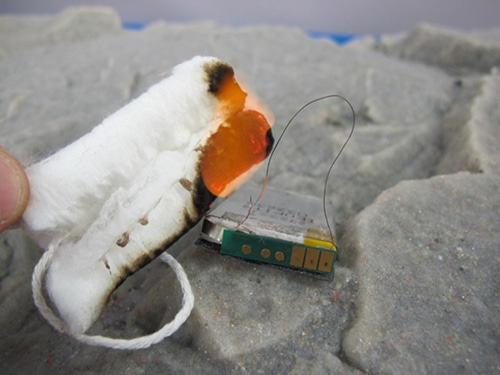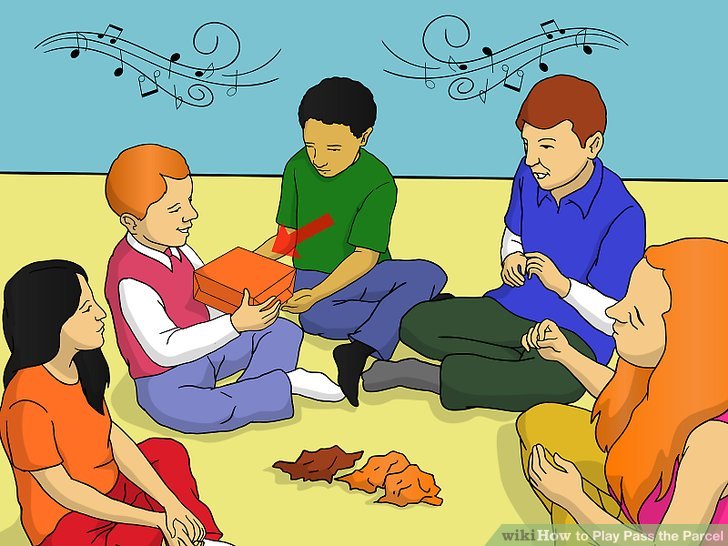Update: What Adam started has led to further confessionals! You can read the other volumes (so far) here:
- Volume 1:
@MrARobbins http://bit.ly/badlesson1 - Volume 3:
@grumpyteacher17 http://bit.ly/badlesson3 - Volume 4:
@amymayforrester http://bit.ly/badlesson5
This is a quick follow up on Adam Robbins’ entertaining, embarrassing and useful post “The follies of yoof: mistakes I made so you don’t have to.” We’ve been having some cathartic confessional conversations recently about the things we did early in our teaching career. Things that (at the time) felt like a good idea. In fact, sometimes they felt like sheer genius! However with the benefit of hindsight, and with a better understanding of the basic principles of cognitive science, I can now see that they were pretty ridiculous. Our hope is that by sharing these embarrassing activities, and explaining (if it isn’t already bleedingly obvious) why they are a bad idea we may discourage anyone else from taking a similar path.
I’ll be honest, I’ve done an awful lot of silly things in my teaching career, so narrowing it down to a few may be tricky, but here goes…
1. The flaming tampon hydrocarbon lesson
My second year of teaching, and I had to teach a middle ability Y11 class about Hydrocarbons. You know, how length of chain effects combustion rate etc.
I’m a physicist, so I’m using that as my excuse for what happened next.
I was planning the lesson and turned to a couple of Chemistry colleagues for guidance. I explained how I wanted to demonstrate how the different hydrocarbons burnt at different rates by burning them simultaneously. Maybe there was something absorbent I could soak in the hydrocarbons before setting them alight?
One of my colleagues joking suggested tampons. Challenge accepted.

I purchased some tampons from my local supermarket (think it was Tampax Super Plus, if you’re interested). This involved a slightly awkward phone call to my mother whilst perusing the lady products aisle to find out which would be the most absorbent. I soaked 4 tampons in different hydrocarbons and suspended them via the string from a horizontal metal bar clamped above a basin of water. The stage was set.
As you’d expect, the pupils viewed the demonstration with a mixture of excitement and bemusement. They thought the whole thing was very funny. My rep as a “safe” teacher continued to rise. The demonstration worked pretty well; the short chain hydrocarbon tampons burnt more quickly than the long chain ones and fell into the basin of water in suitably dramatic fashion.
Why it’s a bad idea
Just in case you really needed this explaining…
- Prof D Willingham’s “Memory is the residue of thought” might be one of the most used quotes in cognitive psychology but with good reason. It was certainly true in this case. Turns out this demonstration is really good for getting pupils to remember when Mr Pritchard set fire to tampons. It wasn’t so good at getting pupils to learn anything about hydrocarbons. The tampons became the focus of attention, and as a result became the lasting memory they had of that lesson. This is the double-edged sword of engagement, and it’s hard to wield it successfully. Engagement can improve attainment, but it can also distract from what you want pupils to learn. There are better ways of engaging pupils than novelty demonstrations…
- Daft activities like this undermine your position as a teacher. I had a few uncomfortable conversations with parents at Parents Evening that year. It’s hard to tell parents that their children aren’t taking their studies seriously enough when you’ve set fire to tampons in their lesson. I had a father throw that back at me, and he was right.
- CLEAPSS probably don’t have a risk assessment for it.
2. GCSE Revision Pass The Parcel
Yay! Party games! There’s been a bit of heated discussion on Twitter recently about the use of games in lessons. Back in the day I was all about the games. Pupils will learn more if it’s fun, right?
I don’t think this was an original idea; I would have got it from a consultant or a colleague or a book or something. However it seemed like a great idea; revision lessons can be a bit dry, so if I make it into a party game, pupils will enjoy it and then learn more!
I spent about 2 hours the night before the lesson constructing a parcel. It had some kind of box of chocolates in the middle and a lolly between each layer (all bought on my own lower-end of Main Scale salary). There were 32 in the class so I did 32 layers; I’d try and rig it so that every pupil got a question and a treat.
I’ve just read that back and realised how massively naive I was!

Why it’s a bad idea
- The pupils were solely focussed on winning, not on answering questions. Surprise surprise. Some cheated, argued, did whatever they could to get more than one layer. Once it became unfair other pupils resented the whole activity. The focus was on the game, not the learning
- The whole activity lasted about 20 minutes. It took me hours to put together.
“One of our most important goals as teachers is to cause students to do as much of the cognitive work – the writing, the thinking, the analyzing, the talking – as possible.”
Doug Lemov
- During the activity each pupil only answered 1 question. 1 question in 20 minutes. Total waste of time. They weren’t interested in the other questions being asked. Lemov uses the term “Ratio” to describe the amount of work done by pupils during the lesson. In this activity the ratio is rock bottom.
3. The Webquest
Ah, the web quest. A classic example of “we have this ICT resource, we need to use it”.
A web quest, for those of you lucky enough to have never experienced one, is essentially an online treasure hunt. You provide pupils with some clues/questions to answer, give them the relevant URLs, and away they go on an exciting journey of knowledge accumulation through the exciting realms of cyberspace!
Actually telling pupils stuff was a big no-no in those days, so if you had access to laptops/an ICT suite a well planned webquest was perfect! Really tech-savvy teachers like myself would even provide pupils with access to a Word document on the NETWORK so that pupils didn’t have to type the URLs in by hand. Real 21st Century skills.

Why it’s a bad idea
- Technology fails. Pupils forgot logins. It took some laptops 15 minutes to get started. Batteries died. School filters blocked required pages. Websites failed.
- Technology distracts. When the novelty of the web quest starts to fade (about 10 minutes) the allure of Stick Cricket or The Impossible Game grows strong. As does searching for very dodgy images/memes.
- MOST IMPORTANTLY: Skimming through web pages and copying down a few sentences does not equal learning.
The web quest was the pumped up tech version of the “Knowledge Hunt” activity that I still occasionally see used in lessons. You know the one; posters of info stuck on the walls, pupils walking around taking notes, filling in a grid, and (more often than not) talking to each other, poking each other, mucking about etc rather than learning things.
Knowledge Hunts are often rubbish because of the extraneous cognitive load provided by “hunting” for information, the split attention effect, and the opportunities for distraction. The pupils most disadvantaged by these strategies are the pupils who need our help the most; those pupils who already have a knowledge gap.
I used to do this kind of thing so often, and I’m angry and ashamed about it. I know I’m not alone.
Doing this kind of stuff nearly broke me as a teacher. It was time consuming and ineffective. It may have been “fun”, but my pupils all seem a darn sight more appreciative of the way I teach now, and they’re certainly learning more.
How you can help
As Adam has suggested in his blog, it would be useful to collate some more of these cautionary tales. I’d certainly like to hear them, and I’m sure others will too!
And finally…
Please don’t hate/judge me. I’m much better at teaching now, honest!
Word searches oh dear spent ages creating good ones if there are such things in my yoof. They were all the rage then.
LikeLike
Ah, the word search. Good call.
If you think that’s bad I saw a NUMBER SEARCH in a Maths lesson recently. Find the 6 digit numbers in a grid full of random numbers. Would have been a good detention punishment; not much cop for learning though.
LikeLike